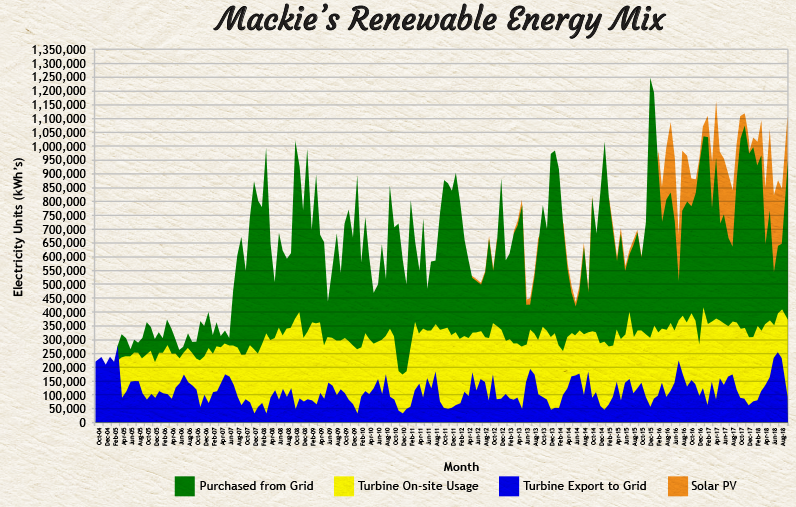Home
The desire for self-sufficiency has been present throughout history, especially in relation to essential resources and vital services. From a geopolitical perspective, this sentiment is strongest when the resource is energy. The rise in demand for energy generated from sustainable sources has never been greater as the impact of man-made greenhouse gas emissions, a by-product of burning of fuels in power generation, and awareness of earth’s diminishing resources becomes clearer.
Sustainability
Serving the needs of the present without compromising supplies available to future generations, sustainable energy is energy consumed at insignificant rates in comparison to available supply, with manageable collateral effects in respect of the impact on the environment. The organising principle for sustainability is sustainable developments which take account of political, social, economic, ecological, and cultural factors. Technologies that promote sustainable energy include renewable energy sources such as wind energy, wave power, solar energy, geothermal heat, hydroelectric, and bio energy, amongst others. These natural sources regenerate themselves and are therefore both renewable and sustainable.
UN Goal 7 “Energy is central to nearly every major challenge and opportunity the world faces today. Be it for jobs, security, climate change, food production or increasing incomes, access to energy for all is essential. Working towards this goal is especially important as it interlinks with other Sustainable Development Goals. Focusing on universal access to energy, increased energy efficiency and the increased use of renewable energy through new economic and job opportunities is crucial to creating more sustainable and inclusive communities and resilience to environmental issues like climate change.”
As the drive to tackle global warming grows, implementation of thousands of remote or off-grid communities with small-scale renewable energy projects designed to meet the needs of individuals, businesses, and communities throughout the world have manifested. Consumers who previously relied primarily on diesel generators for energy provision have replaced or supplemented energy production with greener, renewable sourced alternatives.
The benefits of renewables are widely acknowledged despite the issue of reliability. Challenges associated with wind and solar power generation are the variability and intermittency of these resources. Nevertheless, a stand-alone power system or hybrid system capable of meeting energy demand needs may be configured to accommodate a combination of renewable energy sourced generation such as solar (particularly with photovoltaic), wind, micro hydro, geothermal; along with a generator or micro combined heat and power system with adequate fuel reserves. With stand-alone systems, a degree of reliance on the grid remains which may be overcome by implementation of an appropriate energy storage system to facilitate full self-sufficiency.
Background
Today's companies operate in a fiercely competitive marketplace. Differentiation through corporate branding provides opportunity through competitive advantage. A brand is "the set of expectations, memories, stories and relationships that, taken together, account for a consumer's decision to choose one product or service over another" (Godin, 2015). With the claim of being "the greenest company in Britain". Mackie’s of Scotland has developed a premium brand which relies on differentiation through ‘green’ values and practices as reflected in their mission statement:
"to have a successful sustainable business, one that is self-sufficient in renewable energy and which takes care of the land, wildlife, farm animals, staff and local environment in the best way possible".
Current Provision
In 2005 the first wind turbine was installed at Mackie’s farm, two more were added in 2007 before a final larger turbine was installed in 2015. The wind farm provides for the main energy generation of Mackie’s business operations and a revenue stream from the surplus generated. Consistent with their green credentials, Mackie’s highlight this contribution as electricity “sold on to customers as green energy”. Additionally, ten acres of Solar PV panels installed in 2015 generates 1.8 MW of electricity from 6,912 individual panels each with 260W capacity. Heating for office and housing staff is obtained from 400 kW of biomass energy production.

In a drive to reduce reliance on grid, Mackie’s have managed energy needs effectively through the introduction of mixed technologies. Energy generated from wind turbines, solar and CH&P sources provide around 70% of the farm's energy needs and reduce reliance on the grid. Full self-sufficiency could be achieved through the addition of an energy storage solution which would enable energy generated during periods of high wind which were previously not harvestable to be captured and stored. While there are many technologies capable of energy storage this project focuses on the most recent battery technologies used to store energy generated from renewable sources. Data pertaining to Technical Background; Aims and Methodology; Case Study of the proposed investment; and finally Conclusions ; are provided via links to this page.
Our Project
In keeping with Mackie’s of Scotland’s green policies and aspiration of achieving full energy self-sufficiency, a feasibility study for optimizing energy storage capacity with hybrid renewable generation systems was undertaking to establish and maximise renewable energy autonomy with use of energy storage for industrial sites.
Reference
United Nations Sustainable Development. (2019). Energy - United Nations Sustainable Development. [online] Available at: https://www.un.org/sustainabledevelopment/energy/ [Accessed 8 May 2019].